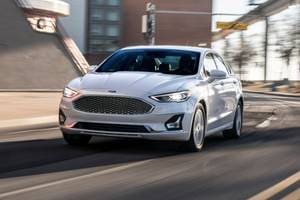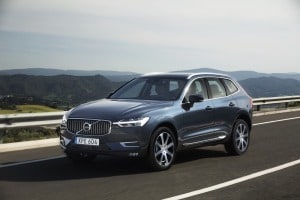More on the Volt Hearing

I don't expect the hearing by the House Committee on Oversight and Government Reform on the Chevy Volt to produce any surprises. No doubt there will be questions about why it took from May to November for NHTSA to make its suspiciously timed announcement about the fire that occurred after a Volt was crash tested. (Suspicious because everyone knows that Thanksgiving weekend is the best time to break news you want buried.)
So why is there a hearing? And more broadly, what is it about the Volt that seems to get people so riled up?
For most people the Volt is simply a high tech vehicle. But for many, it represents much more. For example, the attention the Volt generated during the period when GM was asking Congress for loans, the submission of viability plans and the eventual bankruptcy, has made the Volt a symbol of the bailouts themselves.
One of the perceived risks of government assistance to industry is that the government ends up calling the shots. History has shown this doesn't end well, hence Congressman Darryl Issa's comments during his interview about the Government deciding to build the Volt.
On the face of it, this assertion is clearly not accurate. The Volt was in the pipeline before the bailouts. It was introduced during the Detroit auto show back in 2007. My guess is that back then, GM was miffed that Toyota was getting kudos for the Prius at the same time that Toyota's CAFE performance was deteriorating (due to the introduction of the Tundra and a general drift toward larger vehicles).
GM no doubt figured they could out Prius the Prius and the Volt is the result.
So the government didn't "tell" GM to build the Volt. It was always GM's decision. Here is where it gets a bit more interesting though. The case for the Volt was never about profit. It was always conceived as a halo vehicle. It could also be argued it was a test bed for new technologies etc. And remember that back in 2007, the Bush administration was pushing higher CAFE standards. There was always a case to be made to produce the Volt; just not a financial case.
Now fast forward a couple years. GM is applying for government support and busy preparing viability plans. Part of the approved plan was a dramatic paring back of brands. Pontiac, Saturn and Hummer would be gone, but the Volt would stay.
Here's my question: If GM were working with Wall Street to secure financing (not likely back then, I know. Stay with me...), would Wall Street have provided funding for the Volt? A vehicle with no financial business case? Would Hummer have been jettisoned? (Look at the success Jeep is now enjoying...)
My point is that, while the government did not "tell" GM to build the Volt, GM clearly would have been politically deaf to have not included it as a part of the "new" GM. A featured part. So it makes some sense that the Volt is often seen as a symbol and not just a high tech vehicle.
For GM, the good news is that Fisker is starting to ramp up product and the Tesla S is not too far behind. Arguably both companies owe the fact they made it this far to government loans. Critics of the administration's infatuation with electrified vehicles will have more to poke at.
Electrified vehicles do offer fundamental benefits. For starters, electric motors are lightweight, powerful, quiet and clean. They require minimal servicing, and of course, consumers should expect dramatically lower gas bills — if any at all.
In fact the only issue with electrified vehicles is figuring out how to store the energy needed to power them. (Unfortunately, this is actually quite a big issue...)
Despite their advantages, the market has not embraced electric vehicles. So the government has stepped in with a blizzard of supports from loans, inflated MPG, proposed CAFE "bonuses," tax credits (both federal and often state), car pool lane privileges, charger installation support, etc.
Despite this heavy tilting of the playing field, sales are still sluggish.
This brings us to the nub of the issue: Even with technologies that offer great potential there is usually a reason why the financial markets are hesitant to jump in. Should the government then impose its judgment? And if so, by how much?
Tinkering in the marketplace has historically been a bipartisan effort. Under the Bush administration we had a push towards ethanol, while the current administration favors electricity.
The tinkering is unlikely to stop but it is a legitimate question to ask how much is wise in a market-based economy. But it is probably not a question that will get answered in this week's hearing.





